 Petzlover
Petzlover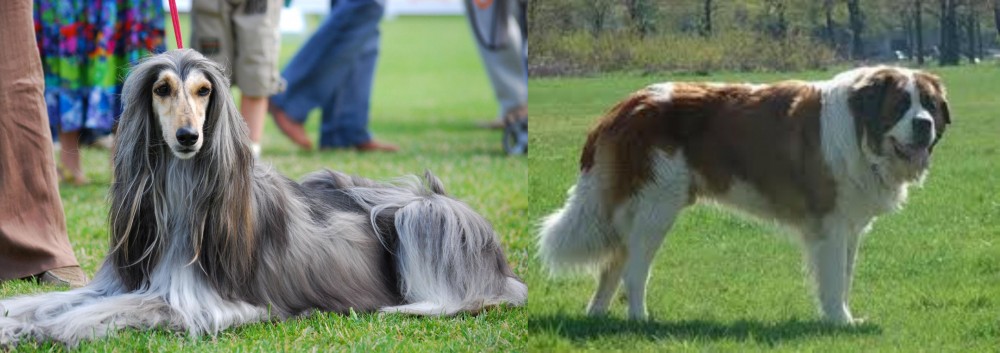 Afghan Hound is originated from Afghanistan but Moscow Watchdog is originated from Russia. Both Afghan Hound and Moscow Watchdog are having almost same height. Afghan Hound may weigh 34 kg / 74 pounds lesser than Moscow Watchdog. Afghan Hound may live 3 years more than Moscow Watchdog. Afghan Hound may have less litter size than Moscow Watchdog. Afghan Hound requires High Maintenance. But Moscow Watchdog requires Moderate Maintenance
Afghan Hound is originated from Afghanistan but Moscow Watchdog is originated from Russia. Both Afghan Hound and Moscow Watchdog are having almost same height. Afghan Hound may weigh 34 kg / 74 pounds lesser than Moscow Watchdog. Afghan Hound may live 3 years more than Moscow Watchdog. Afghan Hound may have less litter size than Moscow Watchdog. Afghan Hound requires High Maintenance. But Moscow Watchdog requires Moderate Maintenance
 The first known information about Afghan Hound was in the 19th century. That dog looked like a Saluki. The breed that we know today is a mix of an Afghan hound accentor which came to Britain in 1920s and other breeds that were popular in that period. Afghan Hound became popular because they were used to hunt big prays in Afghanistan. One of those breeds was Tasy breed. They were very popular among royalty because of its posture and elegance. Their popularity grew very quickly through the whole Europe.
The first known information about Afghan Hound was in the 19th century. That dog looked like a Saluki. The breed that we know today is a mix of an Afghan hound accentor which came to Britain in 1920s and other breeds that were popular in that period. Afghan Hound became popular because they were used to hunt big prays in Afghanistan. One of those breeds was Tasy breed. They were very popular among royalty because of its posture and elegance. Their popularity grew very quickly through the whole Europe.
They were also very popular because they were used to hunt antelopes, gazelles, and snow panthers. In India, English soldiers used them as a mail carrier.
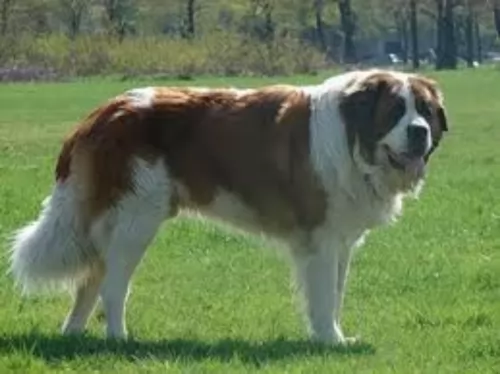 The Moscow Watchdog is a cross between the Caucasian Oytcharka, the St. Bernard and other Russian hound dogs. This large breed dog was developed in the Soviet Union for the purpose of being guard dogs. It had the awareness and assertiveness of the Oytcharka and the size, intelligence and attractiveness of the St. Bernard. The breed is common in Russia today but hardly seen anywhere else even though they were exported to the United States and Europe. The breed had the first U.S. born litter in 2015 and it is not AKC recognized.
The Moscow Watchdog is a cross between the Caucasian Oytcharka, the St. Bernard and other Russian hound dogs. This large breed dog was developed in the Soviet Union for the purpose of being guard dogs. It had the awareness and assertiveness of the Oytcharka and the size, intelligence and attractiveness of the St. Bernard. The breed is common in Russia today but hardly seen anywhere else even though they were exported to the United States and Europe. The breed had the first U.S. born litter in 2015 and it is not AKC recognized.
Following the second world war crime was on the rise in the Soviet Union and a new breed of dog was needed to counter this trend. The dog had to be adaptable to very cold temperatures, snowy weather and have a guard dog personality and ability. The breed was called on to guard such locations as railroads, government offices, warehouses, infrastructure and labor camps.
The project to develop this breed was led by General Medvedev beginning in 1946 at the Central School of Military Kynology – which was a department of the Soviet Ministry of Defense. It took many years to develop the Moscow Watchdog which then became a very successful breed.
It took until 1985 for the breed to be “officially” recognized in the Soviet Union and until 1992 to be recognized by the Federation of Dog Breeders in Russia and until 1997 for the standard to be approved by the Russian Kennel Club. They are still working with the FCI to gain international recognition for the breed. At the moment they are considered a part of the Molosser group and shown in the “Special Show” in Russia.
Committed breeders brought the Moscow Watchdog to Hungary in 1986 in order to make the breed more popular. In addition to this there were many breeders from previous Soviet States that wanted to preserve the breed as well. There were about 500 Moscow Watchdogs in Hungary around then. Currently there are about 27 Moscow Watchdogs in the United States. The breed is known to be a gentle giant and very much a family dog these days.
 The average weight of an adult male is 26-34kg, while females are smaller with an average weight approximately 23 kg.
The average weight of an adult male is 26-34kg, while females are smaller with an average weight approximately 23 kg.
While average height of the Afghan Hound is 68-74cm. Females are slightly smaller with an average height of 63cm.
The lifespan of an Afghan Hound is 12-14 years, but that always depends on the dog to dog. If you have a healthy dog and you take proper care, they tend to live much longer than average lifespan.
Litter Size again variates from dog to dog, but an average litter size is 6-7 puppies.
Afghan hound has many other names, so you might know this breed as Tazi, Tazhi Spay, Da Kochyano Spay, Sage Balochi, Ogar Afgan, Barakzai Hound, Eastern Greyhound, and Persian Greyhound.
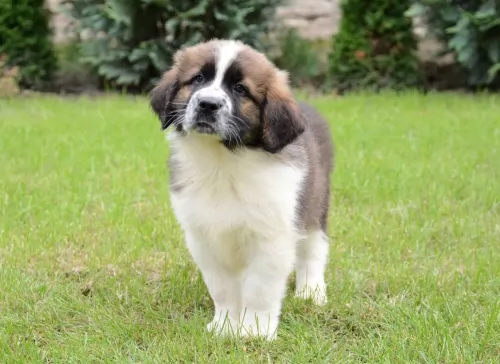 The Moscow Watchdog is related to the mountain dogs and is a very large breed. They are sturdy, muscular and powerful. They have big heads and a thick double coat that sheds profusely four times a year. They have a long tail, an arched chest and an air of confidence.
The Moscow Watchdog is related to the mountain dogs and is a very large breed. They are sturdy, muscular and powerful. They have big heads and a thick double coat that sheds profusely four times a year. They have a long tail, an arched chest and an air of confidence.
He is in the Mastiff family and is smart and trainable. He is not clumsy but has big bones. He is surprisingly agile and active for a dog his size. Unlike the St. Bernard he is not a couch potato. He is also differentiated from the St. Bernard because he does not drool.
These dogs are large but they’ve got a gentle temperament and are good with kids, being playful and energetic with them.
Even though he is a docile dog, you want him trained and socialized, and then he gets along well with other pets too. His sheer size makes it that it is best to supervise him when he’s around small children. He is also a protective dog breed, willing to bond closely to, and protect his human family.
 Afghan hounds love spending time with one owner or one family. They are not very sociable with other guests. They won’t bark or attack. They simply just don’t enjoy big crowd company. They do not enjoy spending time with children, but if trained properly they will learn to adjust. They simply don’t like quick and sudden movements, but they are not aggressive towards children. They are very independent and intelligent dogs. It is important to be gentle, patient and kind because they love positive training and awards. They are amazing breed with proper owner. Rough handling and punishments will make Afghan hound withdrawn or even depressed. Afghan hound do not tend to please its owner.
Afghan hounds love spending time with one owner or one family. They are not very sociable with other guests. They won’t bark or attack. They simply just don’t enjoy big crowd company. They do not enjoy spending time with children, but if trained properly they will learn to adjust. They simply don’t like quick and sudden movements, but they are not aggressive towards children. They are very independent and intelligent dogs. It is important to be gentle, patient and kind because they love positive training and awards. They are amazing breed with proper owner. Rough handling and punishments will make Afghan hound withdrawn or even depressed. Afghan hound do not tend to please its owner.
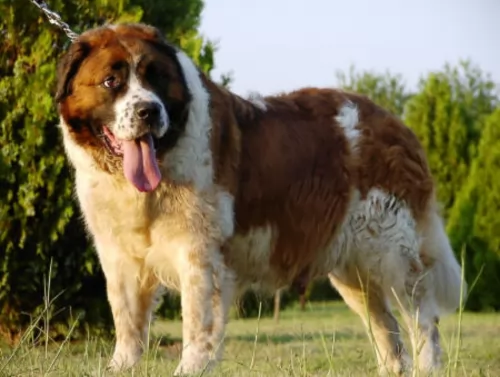 This is a large dog who likes to be involved and busy, even though he is so big. He isn’t suited to city life and being confined to a tiny garden as he needs space.
This is a large dog who likes to be involved and busy, even though he is so big. He isn’t suited to city life and being confined to a tiny garden as he needs space.
They’re independent dogs too and you can leave them alone during the day. He is social, so while you can leave them during the day while you’re at work, he’ll want your attention when you get back. They're such loving, loyal family pets that you owe it to him to make this gentle giant of a dog as happy as can be.
 Afghan hounds are generally very healthy breed. But, as every breed, they have tendencies to some health problems. If you want to prevent those diseases it is important to select a right and healthy puppy.
Afghan hounds are generally very healthy breed. But, as every breed, they have tendencies to some health problems. If you want to prevent those diseases it is important to select a right and healthy puppy.
Elbow and hip dysplasia are basically common health problem to any big breed. Juvenile cataracts, Cancer and Hypothyroidism are some of the health problems that have been found in this breed, but overall, with proper care and regular vet checks, you will have a happy and healthy Afghan.
 Moscow Watchdog is looked upon as a fairly healthy dog breed but there are some risks such as hip dysplasia as well as some other large breed problems.
Moscow Watchdog is looked upon as a fairly healthy dog breed but there are some risks such as hip dysplasia as well as some other large breed problems.
With big dogs like this, hip dysplasia is a threat. Its an hereditary condition where the parent dogs pass down the problematic genes. Hip dysplasia results in inflammation and pain for your pet, and where once he loved to play, he is reluctant to and battles to get up after lying down.
 Afghan hound loves eating and 2-2.5 cups of high-quality dry food. It is better if the dog is feeding twice a day. Always depends on the activity of the dog, metabolism, age, size and built. So it is important to observe your dog and to realize what is the best quantity of food.
Afghan hound loves eating and 2-2.5 cups of high-quality dry food. It is better if the dog is feeding twice a day. Always depends on the activity of the dog, metabolism, age, size and built. So it is important to observe your dog and to realize what is the best quantity of food.
Feeding the Afghan puppy should be feed at least 3-5 times per day. It is important to feed your puppy with smaller portions, but more times per day.
Grooming this breed is not very hard, but it requires grooming and taking care of the long coat. Besides a couple of baths, every year and regular everyday grooming will make your dog hair look amazing! Afghan hound is not dog with a lot of requirements.
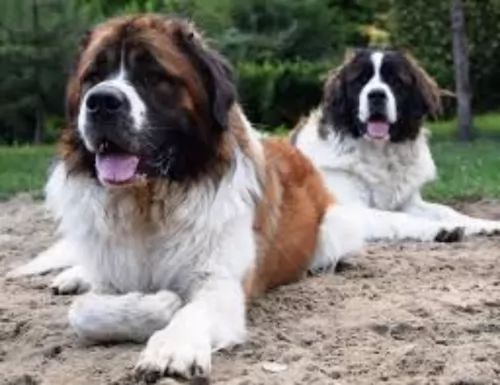 The Moscow Watchdog is a giant sized dog and will require a lot of regular exercise, and apart from a fairly brisk daily walk, will also need games and a run in the park.
The Moscow Watchdog is a giant sized dog and will require a lot of regular exercise, and apart from a fairly brisk daily walk, will also need games and a run in the park.
As a large dog requiring a regular dose of physical exercise as well as mental stimulation, he is better suited to life in the country or at least where there is a large garden.
The Moscow Watchdog has a medium length coat, and as a moderate shedder, you will need to simply brush his coat twice a week to remove loose hair. There is no professional grooming required for these dogs.
Homemade food is always a treat for a dog, but if you’re feeding your Moscow Watchdog commercially manufactured food because of the sheer convenience it provides, make sure the packaging says 'large- or giant dog breed' food. This way you know your pet is getting the right amount of minerals and vitamins for his size.
Always buy the best quality food to avoid giving your pet an overdose of colorants and preservatives. Try and give your pet some home-made food such as boiled chicken, some brown rice or pasta and some cooked vegetables such as sweet potatoes, carrots and spinach. These can be added to his kibble every now and again.
A simple diet like this agrees with your pet and he will be healthy and happy with his lot.